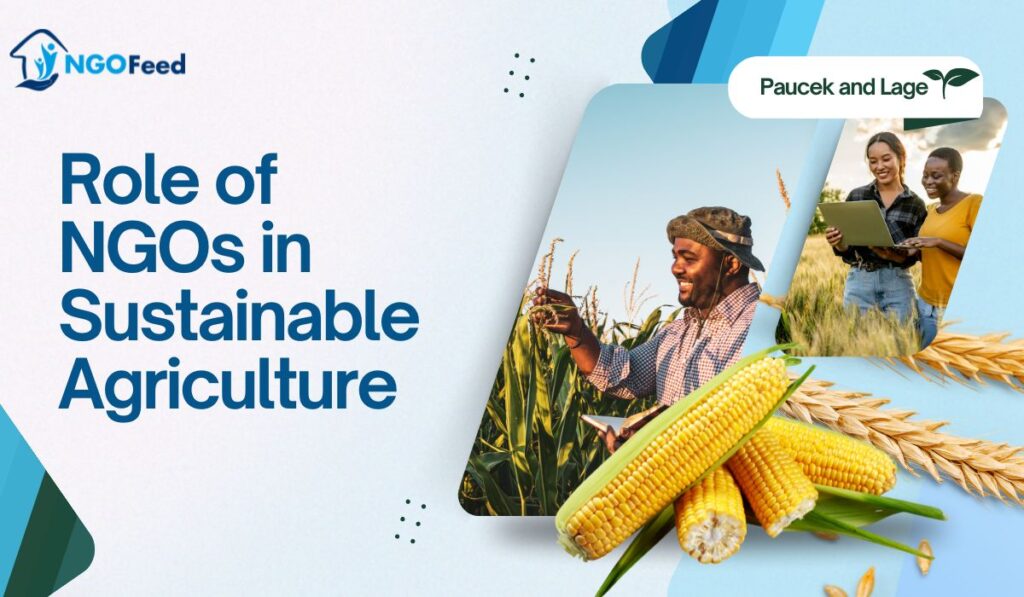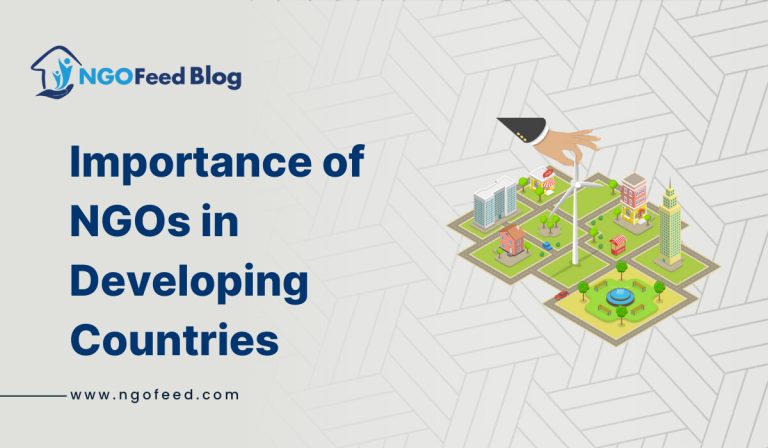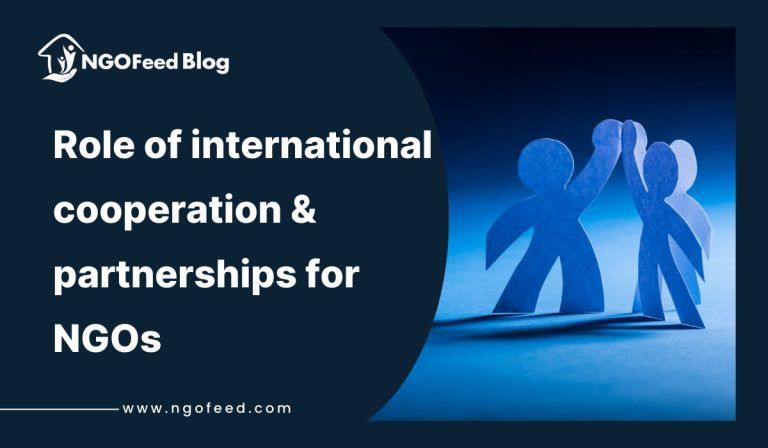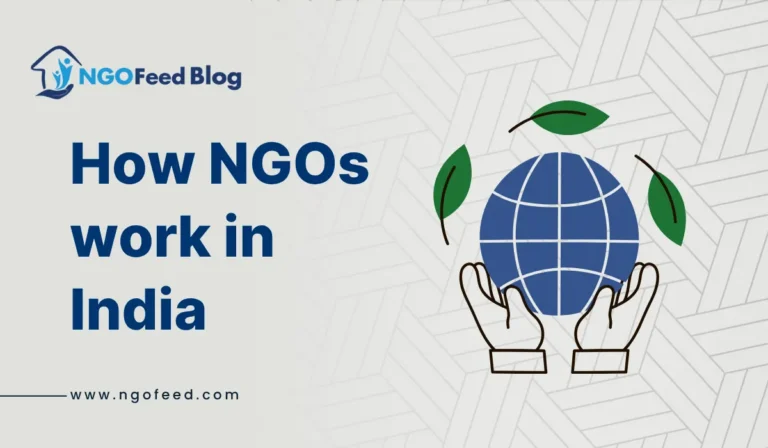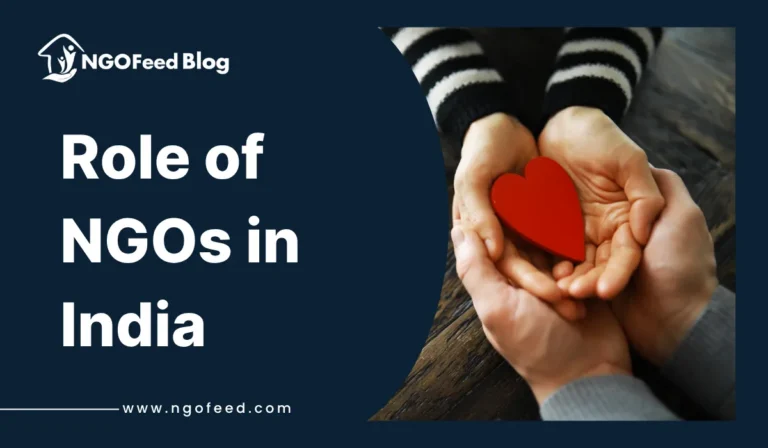Role of NGOs in Sustainable Agriculture: Practitioners of sustainable agriculture seek to integrate three main objectives into their work: a healthy environment, economic profitability, and social and economic equity. Every person involved in the food system—growers, food processors, distributors, retailers, consumers, and waste managers—can play a role in ensuring a sustainable agricultural system.
Sustainable agricultural practices are intended to protect the environment, expand the Earth’s natural resource base, and maintain and improve soil fertility. Based on a multi-pronged goal, sustainable agriculture seeks to:
- Increase profitable farm income
- Promote environmental stewardship
- Enhance quality of life for farm families and communities
- Increase production for human food and fiber needs
Table of Contents
What does Sustainability Refer To?
In 1987, the United Nations Brundtland Commission defined sustainability as “meeting the needs of the present without compromising the ability of future generations to meet their own needs.” Today, there are almost 140 developing countries in the world seeking ways of meeting their development needs, but with the increasing threat of climate change, concrete efforts must be made to ensure development today does not negatively affect future generations.
They form the framework for improving the lives of populations around the world and mitigating the hazardous man-made effects of climate change. SD13 calls for integrating measures to prevent climate change within development frameworks. SD14 and SD15 also call for more sustainable practices in using the earth’s natural resources.
Also Read: Role of NGOs in Environmental Protection
Why Measure Sustainability?
Measuring sustainability can help with assessing progress, encouraging participation, assessing trade-offs, meeting or anticipating new requirements, rewarding excellence, and conferring benefits.
Measuring sustainability can help with tracking and assessing progress, encouraging broad participation by stakeholders, evaluating sustainability tradeoffs, meeting or anticipating new requirements, finding programmatic barriers, rewarding excellence, and communicating benefits and goals.
Measuring sustainability allows organizations to track and assess progress resulting from their sustainability efforts and investments.
INVEST establishes standard and qualitative measures for sustainability that will enable agencies, organizations, program managers, and project managers to set sustainability goals, track progress, and apply management strategies. INVEST also allows agencies to obtain a “snapshot in time” of their sustainability efforts which allows agencies to not only track and assess progress, but manage their progress toward sustainability goal
Three pillars of sustainability
The three pillars of sustainability (environmental, economic, and social) can help us to pave a path toward a sustainable future.
Environmental sustainability: The principle of maintaining ecological integrity and ensuring that Earth’s environmental systems remain balanced as natural resources such as air, water, soil, forests, and animals are being consumed by humans.
Economic sustainability: The goal for humans on Earth to maintain independence and be able to get a job or acquire other resources to meet their needs. Economic systems must be in place and accessible to all.
Social sustainability: The principle of ensuring that basic human needs are attainable by all and that there are enough resources available to all within a community. Strong social systems can ensure healthy, happy communities whose human rights such as labor, health care, and equality are respected.
Also Read: Role of NGOs in Conservation and Biodiversity Protection
Objectives of Sustainable Development
1. Economic Growth: For creating an economy that is sustainable and growing in the right direction.
2. Protecting the Environment: This objective focuses on contribution by humans towards protecting and enhancing the natural environment, by minimising pollution and waste, also working towards reducing the global carbon footprint.
3. Social Inclusion: This objective focuses on providing the facility of housing for future generations and assisting in creating healthy, strong and vibrant global communities.
Importance of Sustainable Development
Following are the importance of sustainable development:
1. Using the available resources judiciously and working towards maintaining the ecological balance.
2.To prevent degradation of the environment and laying emphasis on protecting the environment.
3. To prevent overexploitation of resources.
Role of NGOs in Sustainable Agriculture
- Non-Governmental Organizations, commonly referred to as NGOs, have emerged as key players in the realm of sustainable development, wielding a potent blend of advocacy, community engagement, and resource mobilization to drive impactful change. These organizations, often fueled by a passion for environmental conservation and social equity, operate at the forefront of global and local sustainability efforts, transcending geographical boundaries and political constraints.
- NGOs undertake diverse roles in the context of sustainable tree planting, ranging from facilitating community-based reforestation projects to advocating for policy reforms that support sustainable land management. Their efforts encompass a wide spectrum of activities, including awareness campaigns, capacity building, and fostering partnerships with governmental bodies, private enterprises, and local communities.
- A significant keyword, “NGO-driven tree planting,” epitomizes the collaborative and community-centric approach adopted by these organizations in spearheading sustainable development projects worldwide. As evidenced by data from various environmental agencies, NGOs have successfully partnered with communities to establish and maintain over 30,000 sustainable tree nurseries globally, providing employment opportunities and fostering a sense of environmental stewardship within local communities.
Sustainable agriculture practices
Through decades of science and practice, the following farming practices have proven effective in achieving sustainability, especially when used in combination:
Rotating crops and embracing diversity.
Planting a variety of crops can have many benefits, including healthier soil and improved pest control. Crop diversity practices include intercropping (growing a mix of crops in the same area) and complex multiyear crop rotations.
Also Read: Role of NGO in Food and Nutrition
Planting cover crops and perennials.
Cover crops such as clover, rye, or hairy vetch are planted during off-season times when soils might otherwise be left bare, while perennial crops keep soil covered and maintain living roots in the ground year-round. These crops protect and build soil health by preventing erosion, replenishing soil nutrients, and keeping weeds in check, reducing the need for fertilizers and herbicides.
Reducing or eliminating tillage.
Traditional plowing (tillage) prepares fields for planting and prevents weed problems but can cause soil loss. No-till or reduced-till methods, which involve inserting seeds directly into undisturbed soil, can reduce erosion and improve soil health.
Applying integrated pest management (IPM).
A range of methods, including mechanical and biological controls, can be applied systematically to keep pest populations under control while minimizing use of chemical pesticides.
Integrating livestock and crops.
Industrial agriculture tends to keep plant and animal production separate, with animals living far from the areas where their feed is produced, and crops growing far away from abundant manure fertilizers.
Adopting agroforestry practices.
By mixing trees or shrubs into their operations, farmers can provide shade and shelter that protect plants, animals, and water resources, while also potentially offering additional income from fruit or nut crops.
Managing whole systems and landscapes.
Sustainable farms treat uncultivated or less intensively cultivated areas as integral to the farm. For example, natural vegetation alongside streams, or strips of prairie plants within or around crop fields, can help control erosion, reduce nutrient runoff, and support bees and other pollinators and biodiversity in general.
NGOs Working for NGOs in Sustainable Agriculture
Universal Versatile Society
The NGO is into several critical areas such as agriculture, environment, rural development, education, and women empowerment. Its mission is to serve the communities by connecting the donors with community-based projects and use its expertise to promote sustainable development projects.
Also Read: Role of NGOs in Water and Sanitation
Gramya Resource Centre For Women
Founded in 1993 to promote women’s rights, Gramya’s vision is to create a just society with equal opportunities for women, especially tribals and Dalits. In the rural areas, Gramya works for the well-being and rights of the farming community, by addressing the crisis of farmer suicides and assisting victims’ families. Their collective efforts are helping thousands of distressed farmer families.
Dilasa Sanstha
Established in 1994, Dilasa Sanstha works in close cooperation with several smaller NGOs in Maharashtra’s Vidarbha and Marathwada regions. It advocates innovative and sustainable irrigation methods to support agricultural development for tribal people and small Indian farmers. The low-cost technical solutions provided by Dilasa help the farmers improve irrigation methods and practice mixed cropping.
End Poverty
End Poverty was started in 2009 with the purpose of poverty reduction in India through sustainable livelihood creation, girls education, rural development and civil society development. The nonprofit has been working in the states of Rajasthan, Haryana, Karnataka, Madhya Pradesh and Delhi. Its main beneficiaries are poor, landless agricultural Indian farmers, small and marginal farmers, traditional artisans, poor women, uneducated girl children, unemployed youth, etc. It provides capacity building and training to support diverse groups.
Swades Foundation
Founded by Ronnie and Zarina Screwvala, Swades Foundation operates with the aim of empowering rural India by incorporating innovative practices and the use of modern technology. Swades aims to empower one million rural Indians every 5-6 years through holistic development with a focus on health, education, water and sanitation, and economic development.
Also Read: Role of NGOs in Water and Sanitation
Conclusion
Sustainable and organic farming is imperative for preserving environmental health, enhancing soil fertility, and ensuring long-term food security. These practices reduce reliance on synthetic chemicals, promote biodiversity, and mitigate climate change.

